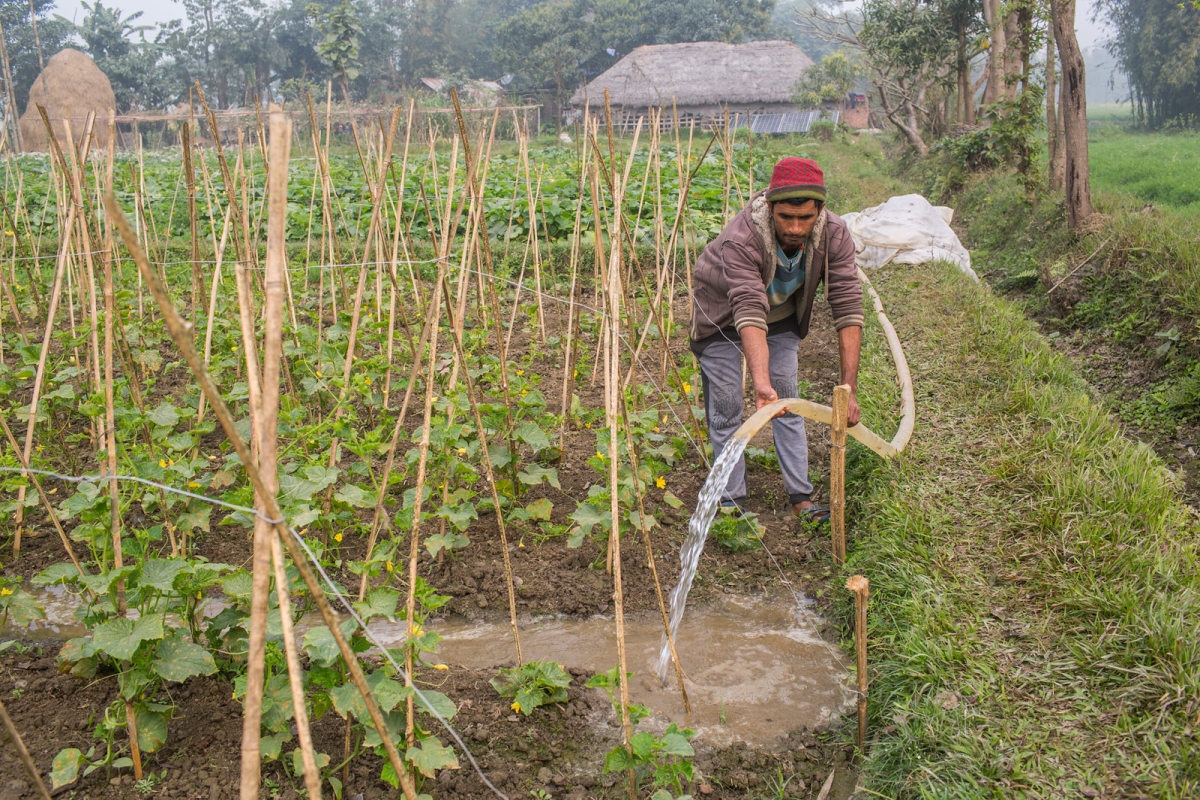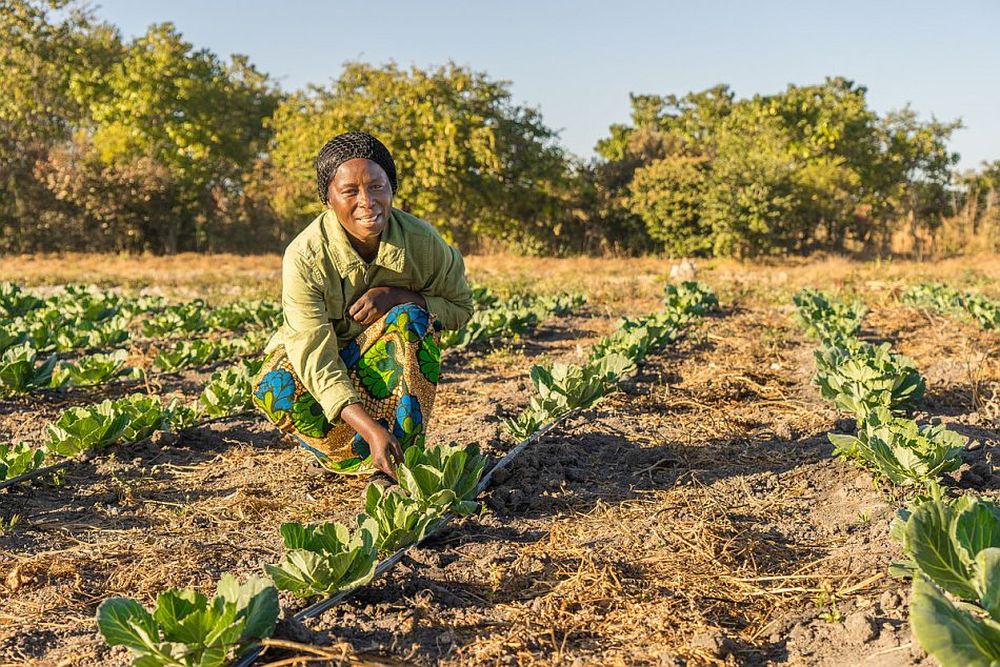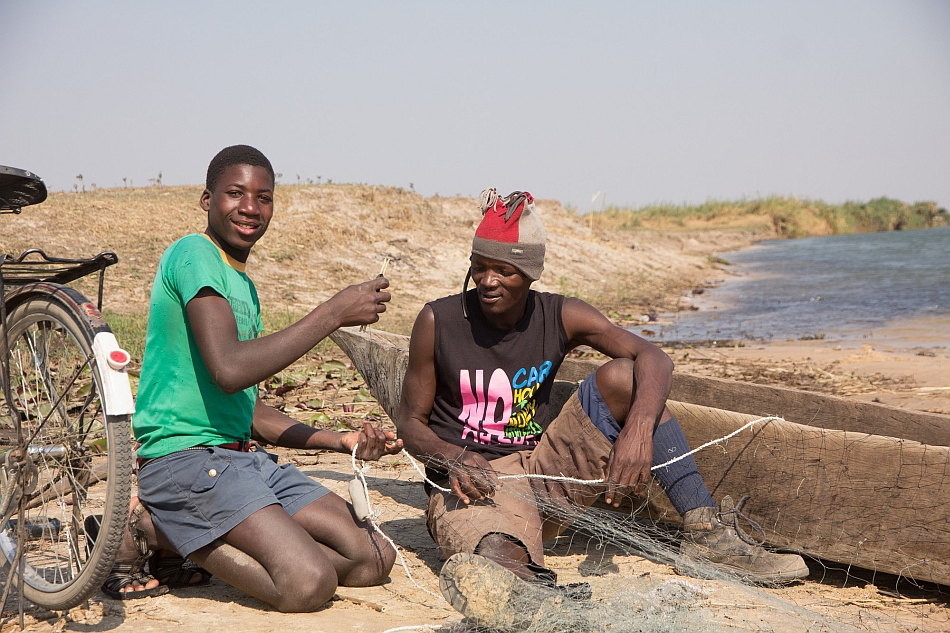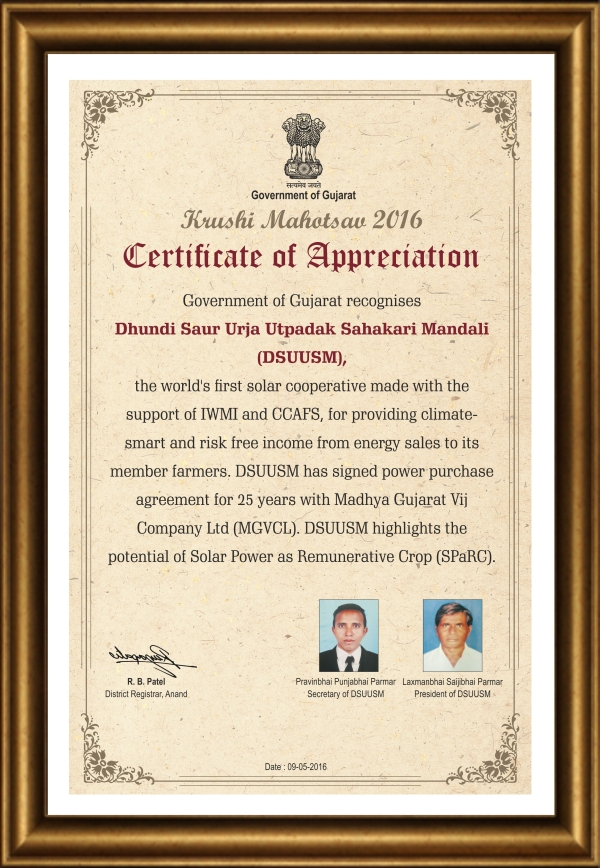(Colombo, October 10, 2020) The International Water Management Institute (IWMI) and the Swiss Agency for Development and Cooperation (SDC) have awarded five organisations with funds to develop innovations for solar irrigation.

The grantees will benefit from the SoLAR Innovation Fund (IF) set up by IWMI and SDC to support the development and testing of technological, financial and institutional innovations to promote the widespread use of solar irrigation, with a focus on the problems faced by small-scale, marginal, and women farmers in South Asia.
The grantees are:
- Kalinga Renewable Energy Manufacturers Pvt. Limited (KARMA), India
- Environment Conservation Society (SwitchON Foundation), India
- Gham Power Nepal Private Limited, Nepal
- Pakistan Agricultural Research Council (PARC), Pakistan
- KHM Power Limited, Bangladesh
Irrigation is a key means for smallholder farmers adapt to climate change. And, in much of South Asia, the only reliable source of irrigation is groundwater. However, historical gains in food production are now at risk with South Asia’s over-dependence on this precious resource.
Around 12 million of South Asia’s water extraction pumps are electric and 10 million are diesel, both with a substantial carbon footprint. Groundwater responsive solar irrigation offers a more sustainable solution to manage water resources while also seeking to address potential overuse of this valuable water resource.
“We have always wanted to work towards reducing the gender gap while upholding our values of sustainable development. We are really excited and grateful that through the SoLAR IF Grant we will be doing just that”, Vinay Jaju, Co-Founder, SwitchON Foundation, India.
“Through the Innovation Fund, instituted as part of the Solar irrigation for Agricultural Resilience (SoLAR) project, SDC aims to support the development and field-testing of innovative ideas and practices that can help address the challenges in sustainable adoption of solar irrigation pumps among small, marginal and women farmers in the partner countries, thereby enhancing farmer resilience and reducing the carbon footprint of agriculture sector,” Divya Kashyap, Senior Advisor and Project Manager, Swiss Agency for Development & Cooperation (SDC).
SoLAR is an SDC funded project led by IWMI which will generate knowledge to sustainably manage water-energy and climate interlinkages through the promotion of solar irrigation pumps (SIPs). The main goal of the project is to contribute to climate-resilient, gender-equitable, and socially-inclusive agrarian livelihoods in Bangladesh, India, Nepal and Pakistan by supporting government efforts to promote solar irrigation.
The objectives of the SoLAR Innovation Fund are to support innovations that:
- Help to bridge the gaps that hamper the scaling out of solar irrigation pumps in South Asia.
- Are targeted at reducing barriers for sustainable adoption and use of solar irrigation pumps by small-scale, marginal, and women farmers.
- Encourage the sustainable use of groundwater resources when using solar-based irrigation.
- Enhance climate-resilient livelihood options for small-scale, marginal, and women farmers in the region.
A technical panel comprising nine experts from Bangladesh, India, Nepal and Pakistan, and representatives from IWMI and SDC evaluated the selection of grantees. Starting in 2020 and for the next three years, IWMI will administer a SoLAR Innovation Fund (IF) with a total value of CHF 400,000. The maximum duration of a project is 24 months.
For more information, please contact:
Toby Johnson, Head Global Communications and Knowledge Management
e-mail t.johnson@cgiar.org; tel +94 (0)779425984
The International Water Management Institute (IWMI)
The International Water Management Institute (IWMI) is an international, research-for-development organization that works with governments, civil society and the private sector to solve water problems in developing countries and scale up solutions. Through partnership, IWMI combines research on the sustainable use of water and land resources, knowledge services and products with capacity strengthening, dialogue and policy analysis to support implementation of water management solutions for agriculture, ecosystems, climate change and inclusive economic growth. Headquartered in Colombo, Sri Lanka, IWMI is a CGIAR Research Center and leads the CGIAR Research Program on Water, Land and Ecosystems (WLE). www.iwmi.org










